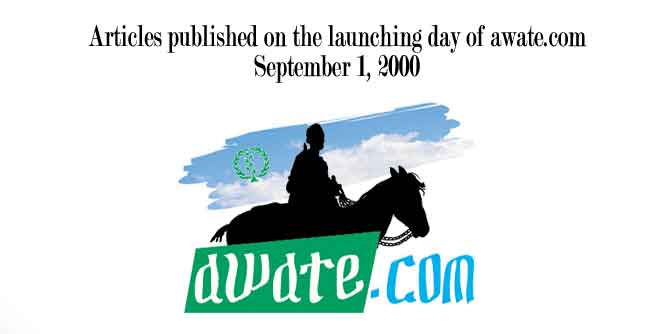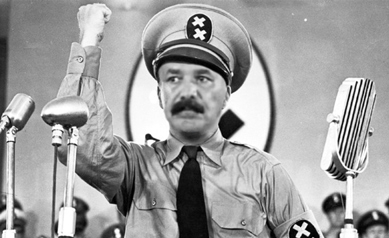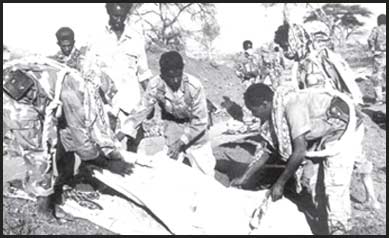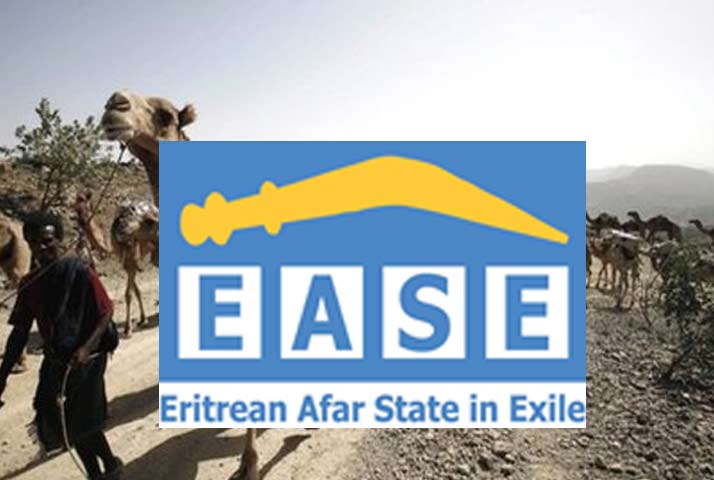Post-War Survival

This article was contributed on the launching day of awate.com by Beverly Frogge, a friend from the days of Dehai.
Years ago, after the A-bomb was dropped on Hiroshima and Nagasaki, two cities became rubble, as were the lives of those that survived the initial blast that in minutes transformed the world forever. I have been reminded that survivors thought that the world literally had come to an end. People were found walking around in a daze, thinking that they were the sole survivors on earth. Over the last few decades of revival, the social consequences have never been fully clarified. The fact that the now aging survivors still suffer from aftereffects can never be forgotten. This is one of the worst scenarios that I can think to mention to relate to the crisis of any war and brings me to the topic at hand. Think of Eritrea in the above format.
My thoughts turn toward Eritrea and the future of its warriors that have been fighting in trenches for too many months to remember. Eritrea became a nation that had realized its dream for independence, after decades of struggle. It started building its country into the utopia and the vision of its people’s minds and hearts. Then, after less than a decade, it was driven back to the battlefield to witness the destruction of its labor, the loss of loved ones and the trauma of seeing and experiencing, what is called “traumas outside the normal human experience.” The syndrome that follows this type of trauma is called Post-Traumatic Stress Disorder. In the past, other terminology was used, shell shock was one word used, but the cause has not changed. Surviving and living after a “traumatic experience beyond the normal human experience” has been and is being studied to try to assist those with this disorder “PTSD” that has occurred due to traumatic experiences of varied kinds. Although the trauma remains forever in these people’s lives, it can become less debilitating, allowing a person to “survive” in a more productive way.
In fact, the symptoms of PTSD can also be the defense mechanisms that allow a person to survive a “traumatic event.” Survival mechanisms allow a person to function and do what has to be done in order to live through a terrible event that perhaps another person could not tolerate. One of these symptoms is frequent, psychic numbing at the time of the event which allows the person to function during the experience, sometimes without a real memory or concise recall of the exact nature of the event. This later can be followed by intrusive distressing memories of the event, including thoughts or perceptions, recurrent dreams of the event, acting or feeling as if the traumatic event were recurring (literally) includes reliving the experience, dissociative flashback episodes where a person feels the event is recurring with intense psychological distress.
Survivors experience persistent avoidance of stimuli that can be associated with the trauma, decreased interest in activities, inability to feel or give love or a sense of a foreshortened future as in career, marriage or children or a normal life span. They may avoid being around people due to lack of trust or inability to function in situations that they cannot control, such as being in crowds, going to restaurants, etc., and thereby having a tendency to live solitary lives without trust, love or close friends. They may turn to drugs or alcohol addiction to make living tolerable, therefore increasing the avoidance of the causation. These can be life-long symptoms.
Symptoms may also include: difficulty falling or staying asleep, outbursts of anger, difficulty concentrating, forgetfulness, and increased startle response. People may need to do simple things to protect their sense of security, such as sitting with back against a wall, always knowing where a person is or who is in a room. Lack of trust of tantamount. “Trust no one.”
So in looking at the above list of symptoms that will be experienced by those Eritreans living in Eritrea, during this war, an enormous problem is brought to light as to how to assist a whole nation to recover from the horrendous trauma that reaches from the oldest to the youngest of the population.
At this point in time in Eritrea, the basic needs of food and drink may not even be met, although I understand that camps have been set up for that purpose. These camps might also help bring about meeting some of the next needs of individuals–safety, security and psychological safety. In that “unless you have been there” it is difficult for people to trust caregivers. By the way of organization of shelters, camps for the homeless, survivors if assisted, can be of assistance to one another. The immediate crisis intervention is one wherein people can talk about what happened, feelings about what happened and similar immediate articulation of “what I have seen, felt and thought.” Then how does all this affect the people at this time? The need to talk to others that understand and were there is a keypoint in the process of healing. Talk in order to someday feel.
This immediate war, has lasted over two years, people are profoundly traumatized and I believe that the return to normalcy will be more difficult than the crisis of the war itself. In war people just function, in life people must live. There is a great difference in the two. I think I have more questions than answers. I wonder if I can picture in my mind the sights, the smell, the fear, the devastation, the lack of protection of my body, my soul and my sanity. The wonderful loyalty of those in the disphoria cannot be discounted.
DSM-IV Diagnostic and Statistical Manual of Mental Disorders (Fourth Edition)




Awate Forum